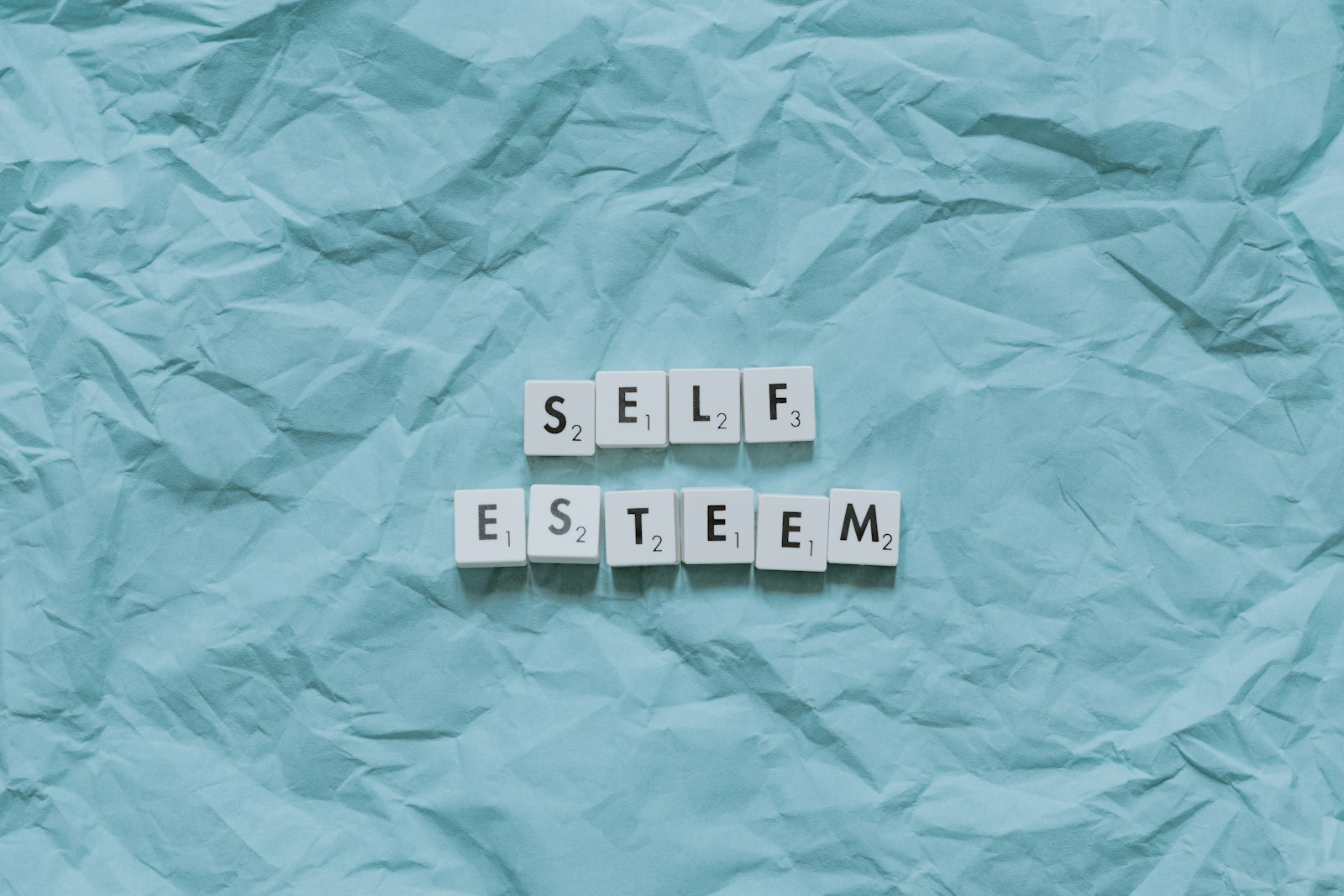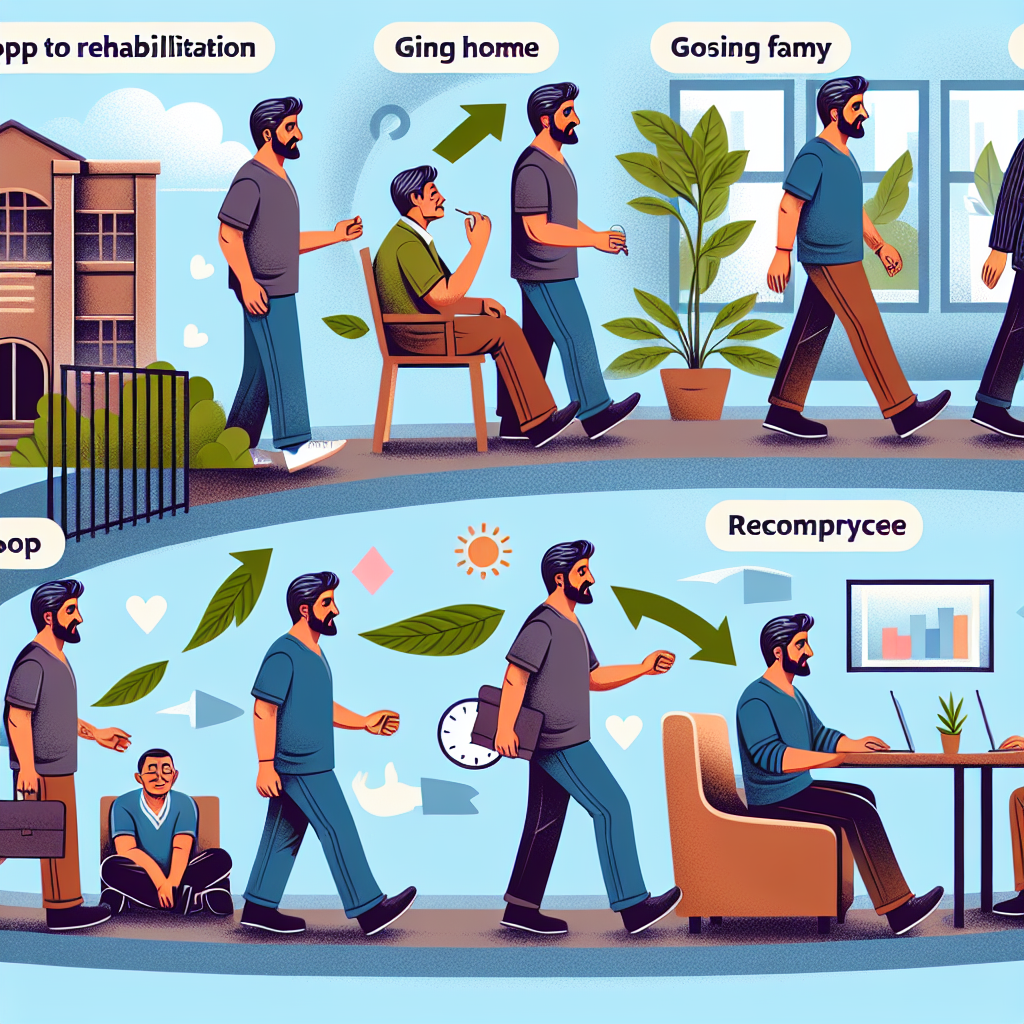-
Table of Contents
“Rise Stronger: Rebuilding Self-Esteem After Heroin Addiction”
Introduction
Rebuilding self-esteem after heroin addiction is a crucial and challenging aspect of the recovery process. Heroin addiction often leaves individuals feeling powerless, ashamed, and disconnected from their sense of self-worth. The journey to regain self-esteem involves addressing the psychological and emotional damage caused by addiction, fostering self-compassion, and developing a positive self-image. This process requires a multifaceted approach, including therapy, support groups, and personal development activities, to help individuals rediscover their strengths, rebuild their confidence, and create a fulfilling, drug-free life.
Strategies For Rebuilding Self-Esteem After Heroin Addiction
Rebuilding self-esteem after heroin addiction is a journey that requires patience, dedication, and a multifaceted approach. The process is often fraught with emotional and psychological challenges, but it is also a path to rediscovering one’s worth and potential. One of the first steps in this journey is acknowledging the courage it takes to seek help and begin recovery. This acknowledgment is crucial because it sets the foundation for a positive self-image, which is essential for rebuilding self-esteem.
As individuals move forward, setting small, achievable goals can be incredibly beneficial. These goals serve as tangible evidence of progress and can help to counteract the negative self-perceptions that often accompany addiction. For instance, committing to a daily routine, such as regular exercise or attending support group meetings, can provide a sense of accomplishment and structure. Each small victory reinforces the belief that change is possible and that one is capable of achieving it.
In addition to setting goals, surrounding oneself with a supportive network is vital. This network can include family, friends, therapists, and support groups. The encouragement and understanding from others can provide the emotional support needed to navigate the ups and downs of recovery. Moreover, sharing experiences with others who have faced similar challenges can foster a sense of community and belonging, which are essential components of self-esteem.
Another important strategy is to engage in self-reflection and mindfulness practices. These practices can help individuals understand the underlying issues that may have contributed to their addiction. By gaining insight into these factors, individuals can develop healthier coping mechanisms and make more informed choices. Mindfulness, in particular, can help individuals stay present and focused, reducing the likelihood of relapse and promoting a sense of inner peace.
Furthermore, it is essential to celebrate personal strengths and talents. Addiction often overshadows one’s abilities and achievements, leading to a diminished sense of self-worth. By identifying and nurturing these strengths, individuals can rebuild their confidence and recognize their value. Engaging in activities that highlight these talents, whether it be through creative pursuits, volunteering, or professional endeavors, can provide a sense of purpose and fulfillment.
Additionally, practicing self-compassion is a critical aspect of rebuilding self-esteem. It is important to recognize that everyone makes mistakes and that these mistakes do not define one’s worth. Treating oneself with kindness and understanding, rather than self-criticism, can foster a more positive self-image. This shift in perspective can be transformative, allowing individuals to move forward with greater resilience and optimism.
Moreover, professional help, such as therapy or counseling, can play a significant role in this process. Therapists can provide tools and techniques to address negative thought patterns and build self-esteem. Cognitive-behavioral therapy, for example, can help individuals challenge and change harmful beliefs about themselves. This professional guidance can be invaluable in navigating the complexities of recovery and self-esteem rebuilding.
In conclusion, rebuilding self-esteem after heroin addiction is a multifaceted process that involves setting achievable goals, seeking support, engaging in self-reflection, celebrating strengths, practicing self-compassion, and seeking professional help. While the journey may be challenging, it is also an opportunity for profound personal growth and transformation. By embracing these strategies, individuals can rediscover their worth and build a fulfilling, drug-free life.
The Role Of Therapy In Restoring Self-Worth Post-Addiction
Rebuilding self-esteem after heroin addiction is a journey fraught with challenges, but it is also one filled with opportunities for profound personal growth. One of the most effective tools in this transformative process is therapy, which plays a crucial role in restoring self-worth post-addiction. Therapy provides a structured environment where individuals can confront their past, understand their present, and build a hopeful future. Through various therapeutic approaches, individuals can begin to dismantle the negative self-perceptions that often accompany addiction and replace them with a more positive and empowering self-view.
Initially, therapy helps individuals to understand the root causes of their addiction. Many people who struggle with heroin addiction have underlying issues such as trauma, mental health disorders, or chronic stress. By addressing these root causes, therapy allows individuals to see that their addiction was not a moral failing but rather a coping mechanism for deeper issues. This understanding is crucial in shifting the narrative from self-blame to self-compassion, which is the first step in rebuilding self-esteem.
Moreover, therapy provides a safe space for individuals to express their emotions and experiences without fear of judgment. This open dialogue is essential for healing, as it allows individuals to process their feelings and experiences in a constructive manner. Therapists often use techniques such as cognitive-behavioral therapy (CBT) to help individuals identify and challenge negative thought patterns. By replacing these harmful thoughts with more positive and realistic ones, individuals can begin to see themselves in a new light. This cognitive restructuring is a powerful tool in restoring self-worth, as it helps individuals to recognize their inherent value and potential.
In addition to cognitive-behavioral techniques, therapy often incorporates elements of mindfulness and self-compassion. Mindfulness practices teach individuals to stay present and engaged in the moment, which can be incredibly grounding for those recovering from addiction. By focusing on the present, individuals can reduce the anxiety and regret that often accompany thoughts of the past or future. Self-compassion exercises, on the other hand, encourage individuals to treat themselves with the same kindness and understanding that they would offer to a friend. These practices can significantly enhance self-esteem by fostering a sense of inner peace and self-acceptance.
Group therapy is another valuable component of the therapeutic process. In a group setting, individuals can share their stories and hear from others who have faced similar struggles. This sense of community and shared experience can be incredibly validating and empowering. Knowing that they are not alone in their journey can help individuals to feel more connected and supported, which is vital for rebuilding self-esteem. Additionally, group therapy provides opportunities for individuals to practice social skills and build healthy relationships, further enhancing their sense of self-worth.
Finally, therapy often includes goal-setting and personal development plans. By setting and achieving small, manageable goals, individuals can build confidence in their abilities and see tangible progress in their recovery journey. These accomplishments, no matter how small, serve as reminders of their strength and resilience, further boosting their self-esteem.
In conclusion, therapy plays an indispensable role in restoring self-worth post-addiction. Through understanding the root causes of addiction, challenging negative thought patterns, practicing mindfulness and self-compassion, participating in group therapy, and setting achievable goals, individuals can rebuild their self-esteem and create a more positive and fulfilling life. The journey may be challenging, but with the right support and therapeutic interventions, it is entirely possible to emerge from the shadows of addiction with a renewed sense of self-worth and hope for the future.
Building A Support Network To Boost Self-Esteem In Recovery
Rebuilding self-esteem after heroin addiction is a journey that requires patience, dedication, and a strong support network. The process of recovery is not just about overcoming the physical dependency on the drug but also about healing the emotional and psychological wounds that addiction often leaves behind. One of the most effective ways to boost self-esteem during this challenging time is by building a robust support network. This network can provide the encouragement, understanding, and accountability necessary to foster a positive self-image and a sense of self-worth.
Initially, it is crucial to recognize that recovery is not a solitary endeavor. While personal determination is essential, the presence of supportive individuals can make a significant difference. Family members, friends, and peers who understand the struggles of addiction can offer invaluable emotional support. Their encouragement can help individuals in recovery to see their own worth and potential, which is often obscured by the shame and guilt associated with addiction. By surrounding oneself with people who believe in their ability to recover, individuals can begin to rebuild their self-esteem.
Moreover, professional support is equally important. Therapists, counselors, and support groups provide a safe space for individuals to express their feelings and experiences without judgment. These professionals can offer strategies and tools to cope with the emotional challenges of recovery. For instance, cognitive-behavioral therapy (CBT) can help individuals to identify and change negative thought patterns that undermine their self-esteem. Support groups, such as Narcotics Anonymous (NA), provide a sense of community and shared experience, which can be incredibly empowering. Hearing stories of others who have successfully navigated recovery can inspire hope and reinforce the belief that change is possible.
In addition to emotional support, practical assistance can also play a vital role in boosting self-esteem. This can include help with finding employment, housing, or educational opportunities. Achieving small, tangible goals can provide a sense of accomplishment and progress, which is essential for rebuilding self-esteem. For example, securing a job or completing a course can help individuals to feel more competent and capable, counteracting the feelings of inadequacy that often accompany addiction.
Furthermore, engaging in activities that promote physical and mental well-being can also enhance self-esteem. Exercise, for instance, has been shown to improve mood and reduce anxiety, which can contribute to a more positive self-image. Similarly, mindfulness practices such as meditation and yoga can help individuals to develop a greater sense of self-awareness and self-compassion. By taking care of their physical and mental health, individuals in recovery can begin to see themselves as worthy of care and respect.
It is also important to celebrate progress, no matter how small. Recovery is a long and often difficult journey, and acknowledging achievements along the way can provide motivation and reinforce a positive self-image. Whether it is a week of sobriety, a successful therapy session, or a new personal insight, each step forward is a testament to the individual’s strength and resilience.
In conclusion, rebuilding self-esteem after heroin addiction is a multifaceted process that benefits greatly from a strong support network. By surrounding themselves with supportive individuals, seeking professional help, achieving practical goals, engaging in healthy activities, and celebrating progress, individuals in recovery can gradually rebuild their self-esteem. This journey is not easy, but with the right support and a commitment to self-improvement, it is entirely possible to emerge from addiction with a renewed sense of self-worth and confidence.
Personal Growth Activities To Enhance Self-Esteem After Heroin Addiction
Rebuilding self-esteem after heroin addiction is a journey that requires patience, dedication, and a variety of personal growth activities. One of the most effective ways to enhance self-esteem is through setting and achieving small, manageable goals. These goals can range from daily tasks, such as maintaining a clean living space, to more long-term objectives, like pursuing education or career advancements. By accomplishing these goals, individuals can experience a sense of achievement and progress, which is crucial for rebuilding self-worth.
In addition to goal-setting, engaging in physical activities can significantly boost self-esteem. Exercise releases endorphins, which are natural mood lifters, and helps to improve physical health, which can be particularly beneficial for those recovering from the physical toll of heroin addiction. Activities such as yoga, running, or even daily walks can provide a sense of routine and accomplishment. Moreover, participating in group sports or fitness classes can foster a sense of community and support, which is essential for emotional recovery.
Another powerful tool for enhancing self-esteem is practicing mindfulness and meditation. These practices encourage individuals to focus on the present moment and develop a non-judgmental awareness of their thoughts and feelings. This can be incredibly helpful for those recovering from addiction, as it allows them to acknowledge their past without being overwhelmed by guilt or shame. Over time, mindfulness and meditation can help individuals develop a more compassionate and accepting relationship with themselves, which is a cornerstone of healthy self-esteem.
Creative expression is also a valuable activity for personal growth and self-esteem enhancement. Engaging in artistic endeavors such as painting, writing, or playing music allows individuals to explore their emotions and experiences in a constructive way. This can be particularly therapeutic for those who have struggled with addiction, as it provides an outlet for processing complex feelings and experiences. Additionally, sharing creative works with others can foster a sense of pride and accomplishment, further boosting self-esteem.
Volunteering and helping others can also play a significant role in rebuilding self-esteem. By contributing to the well-being of others, individuals can gain a sense of purpose and value. Volunteering can also provide opportunities to develop new skills and build positive relationships, both of which are essential for personal growth. Whether it’s helping at a local food bank, mentoring others in recovery, or participating in community clean-up events, giving back can be a powerful way to enhance self-worth.
Furthermore, building a strong support network is crucial for maintaining and enhancing self-esteem. Surrounding oneself with positive, encouraging individuals can provide the emotional support needed to navigate the challenges of recovery. Support groups, therapy, and connecting with friends and family can all contribute to a sense of belonging and acceptance. These relationships can serve as a reminder that individuals are not alone in their journey and that they are valued and supported.
Lastly, it is important to celebrate progress and acknowledge achievements, no matter how small they may seem. Recovery is a long and challenging process, and recognizing milestones along the way can provide motivation and reinforce a positive self-image. Keeping a journal to document successes and reflect on personal growth can be a helpful practice in this regard.
In conclusion, rebuilding self-esteem after heroin addiction involves a multifaceted approach that includes setting and achieving goals, engaging in physical activities, practicing mindfulness, expressing creativity, volunteering, building a support network, and celebrating progress. By incorporating these personal growth activities into their lives, individuals can gradually enhance their self-esteem and build a foundation for a healthier, more fulfilling future.
Q&A
1. **Question:** What are some initial steps to rebuild self-esteem after overcoming heroin addiction?
**Answer:** Initial steps include seeking therapy or counseling, setting small achievable goals, practicing self-care, and surrounding oneself with supportive and positive influences.
2. **Question:** How can therapy help in rebuilding self-esteem post-addiction?
**Answer:** Therapy can help by addressing underlying issues, providing coping strategies, offering a safe space to express emotions, and helping to rebuild a positive self-image.
3. **Question:** Why is setting small goals important in the process of rebuilding self-esteem?
**Answer:** Setting small goals is important because it allows for manageable progress, builds a sense of accomplishment, and gradually restores confidence in one’s abilities.
4. **Question:** What role does a support network play in rebuilding self-esteem after heroin addiction?
**Answer:** A support network provides encouragement, accountability, emotional support, and helps to reinforce positive behaviors and self-perceptions.
Conclusion
Rebuilding self-esteem after heroin addiction is a multifaceted process that involves addressing both the psychological and social impacts of addiction. It requires a commitment to personal growth, often facilitated by therapy, support groups, and a strong network of supportive relationships. Engaging in healthy activities, setting achievable goals, and celebrating small victories can help individuals regain confidence and a sense of self-worth. Overcoming the stigma associated with addiction and focusing on self-compassion are also crucial. Ultimately, rebuilding self-esteem is a gradual journey that empowers individuals to reclaim their lives and foster a positive self-image.



